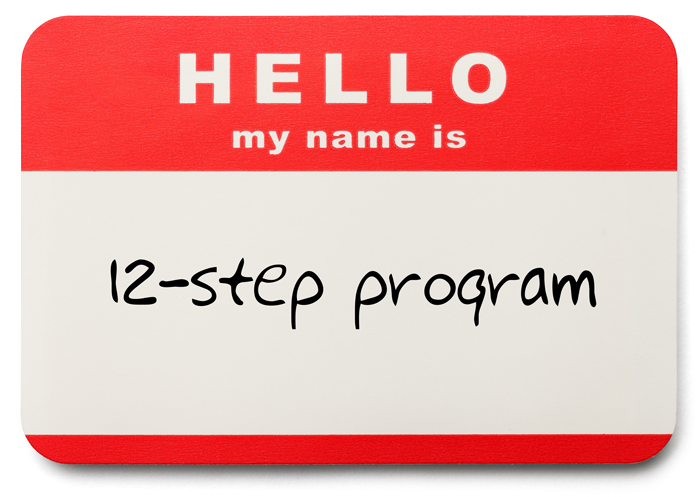A few months ago we began to offer a weekly meeting of SMART (Self-Management and Recovery Training) at Seaside Palm Beach as another tool in the arsenal that a person in recovery can use to maintain abstinence from addictive behaviors. Twelve-step recovery meetings continue as they always have. The weekly Smart meeting has become popular. I can say that a number of people have integrated SMART into their long-range plan for continued abstinence.
 I was a little bit surprised at the impression a few people had of SMART even before we offered to first meeting. One person said, “when I get to the point that I really want to drink I’m not going to do a cost-benefit analysis.” He’s probably correct. However, as I pointed out, “you’re not likely to call your sponsor either.” It doesn’t matter if a person is using 12-step recovery, SMART, or some combination, the reason we use meetings for support is so we don’t get to that point.
I was a little bit surprised at the impression a few people had of SMART even before we offered to first meeting. One person said, “when I get to the point that I really want to drink I’m not going to do a cost-benefit analysis.” He’s probably correct. However, as I pointed out, “you’re not likely to call your sponsor either.” It doesn’t matter if a person is using 12-step recovery, SMART, or some combination, the reason we use meetings for support is so we don’t get to that point.
It is true that where 12-step recovery is based on spiritual principles SMART is based on Cognitive Behavioral Therapy (CBT). A SMART facilitator may tell the group that “spirituality is not part of the SMART program.”
I’m a SMART facilitator and a long time believer in 12-step recovery. I’m good at manipulating. So, if a person brings up “spirituality’ at one of my SMART meetings I will ask “what are the needs you are looking to fulfill?” I will then gladly put items such as belongingness,” “rootedness,” “the desire to be a part of something bigger than oneself” on the agenda for the evening.
 It also occurs to me that if there’s no need for a Higher Power, what do you call a group of people supporting each other?
It also occurs to me that if there’s no need for a Higher Power, what do you call a group of people supporting each other?
On the other hand, “came to believe….” seems fairly cognitive to me.
There are clearly people who object to 12-step’s religiosity. Probably the worst thing someone can do is tell another that 12-Step is not religious.” It is! I’ve often wanted to tell non-believers to “get over it.” Most of the time they don’t. So for some people, SMART may be the only social support for recovery. That would be great if SMART was as geographically available as is 12-step recovery. It’s not even close. Fortunately, SMART has a great website (www.smartrecovery.org).
Great websites are also available to support 12-step recovery (www.intherooms.com ).
Bottom line is that SMART is not something that is offered instead of 12-step recovery. It’s “in addition to.”
Is an addiction a disease? SMART Recovery does not take a position. Alcoholics Anonymous (AA) makes reference to an allergy to alcohol. Does it make a difference when it comes to maintaining abstinence? Probably not. In any case, it’s unlikely that a group of recovering people is going to settle an issue. It takes a lot of energy to maintain abstinence. Leave the argument to scientists.
The goal of SMART recovery is abstinence from addictive behaviors. It does not advocate moderation. It is true that SMART meetings are open to people who have not yet decided to abstain from addictive behaviors. People who have yet to make that decision are welcome providing they are not disruptive.
AA is open to anyone with a “desire not to drink.”
AA is open to anyone with a “desire not to drink.” AA is likely to attract some people still engaged in addictive behavior. They need to have the desire. That’d not a stipulation of SMART recovery.
Point is that both SMART and 12-step recovery may attract people who are still using. I think that SMART attracts a few more. Whether that’s positive or a negative is debatable.
What’s not debatable is that SMART is less shaming. People who find labeling (“my name is …….., I’m a…..”) will feel much more comfortable at SMART.

In 12-step recovery there’s an emphasis on “powerlessness.” SMART emphasizes being “empowered.” The difference may not be as great as it seems. It can be argued that accepting “powerlessness” over an addictive behavior actually frees you up. A good number of people will reject this argument.
I see pluses and minuses regarding SMART’s use of trained facilitators. The thirty-hour on-line certification process is very well done. My experience has been that SMART facilitators are very professional. I’m not sure that the thirty-hour process screens out people who shouldn’t be facilitating groups.
I believe that participants in a SMART group attribute skills to a facilitator that go beyond what the facilitator is trained to perform.
However, sponsors in 12-step programs are frequently seen as having magical powers.
The thing to remember about 12-step and SMART is that they are both support groups, not professional help.
So what does it come down to? My belief is that when a person is ready to give up an addiction, petty arguments about whether one support group being spiritual and another cognitive will go away. That being said, a person has to start somewhere. Whether it’s 12-step or SMART it really doesn’t matter. A person working a strong recovery will find comfort in both.
If you are afraid your loved one could overdose or you are ready to take that first step to get help for yourself, do not wait. Reach out to us today at 561-220-3981 to learn more.













